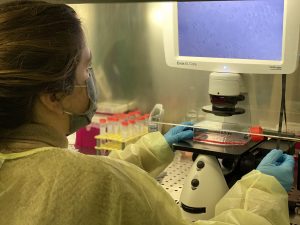Humans and other animals require the intake of a certain amount of iodine, a nutrient necessary for the regular functioning of the thyroid, a gland that regulates the body's metabolism.
Food, water, and breathing the iodine-rich coastal air are the natural sources of this nutrient. Fish, dairy products, and seaweed used to be enough to cover our needs. However, the new nutritional paradigm in the developed world favors the intake of iodine-poor foods. Iodine deficiency, especially during pregnancy and in the first years of life, can compromise the physical and mental development of children.
Salt iodization is the cheapest, most sustainable, and universal way to deal with this problem. The process started a century ago in Switzerland. In Western Europe, mandatory use is not widespread, and the disability can reach worrying levels. In Africa, due to the contribution of the International Community, students are regularly supplemented. Urine tests are used to check iodine levels. However, low or high levels of iodine lead to the same disease - goiter. Therefore, correct daily intake by children and adults, including pregnant women, is imperative to address iodine deficiency worldwide.
The Laboratory of Hydrobiology and Ecology of ICBAS assesses, in Guinea-Bissau (and beyond), the sufficiency of iodine in human urine using a method certified for this purpose. This work is essential to identify iodine deficiency and deal with its consequences.
To know more:
- Endemic goiter and iodine deficiency status among Guinea-Bissau school-age children
- Can non-fortified marine salt cover human needs for iodine?
Contact: Professor Adriano A. Bordalo (bordalo@icbas.up.pt)





